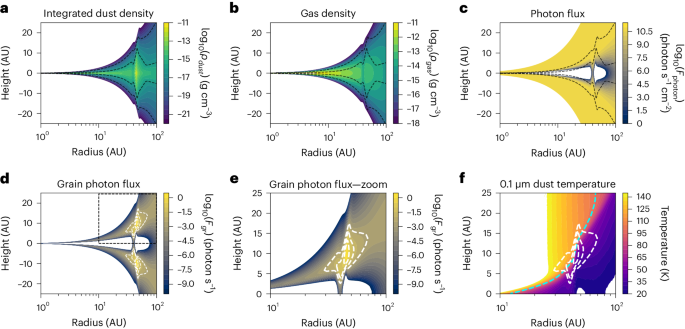Formation of Organic Macromolecules in Protoplanetary Disk Dust Traps: Implications for Astrobiology

Introduction
Organic macromolecules are vital carriers of volatile elements in chondrites, the building blocks of Earth. However, the formation of these macromolecular substances in space has been unclear.
Role of Dust Traps
This study presents evidence suggesting that the formation of organic macromolecular matter is associated with dust traps, which are critical in forming planetesimals within planet-forming disks.
Irradiated Zones
- Heavily irradiated zones exist in dust traps.
- Small frozen molecules coating dust grains can be converted into macromolecules.
- This conversion occurs through exposure to radiation doses of up to several tens of electronvolts per molecule per year.
Impact on Planet Formation
- Simple molecules can transform into complex macromolecules within decades.
- About 4% of the total ice reservoir in protoplanetary disks can undergo this processing.
- This material subsequently contributes to the formation of planetesimals.
This research reveals that the creation of organic macromolecular matter is likely linked to the formation of planetesimals, suggesting that the elements necessary for life may have originated in these environments.
This article was prepared using information from open sources in accordance with the principles of Ethical Policy. The editorial team is not responsible for absolute accuracy, as it relies on data from the sources referenced.